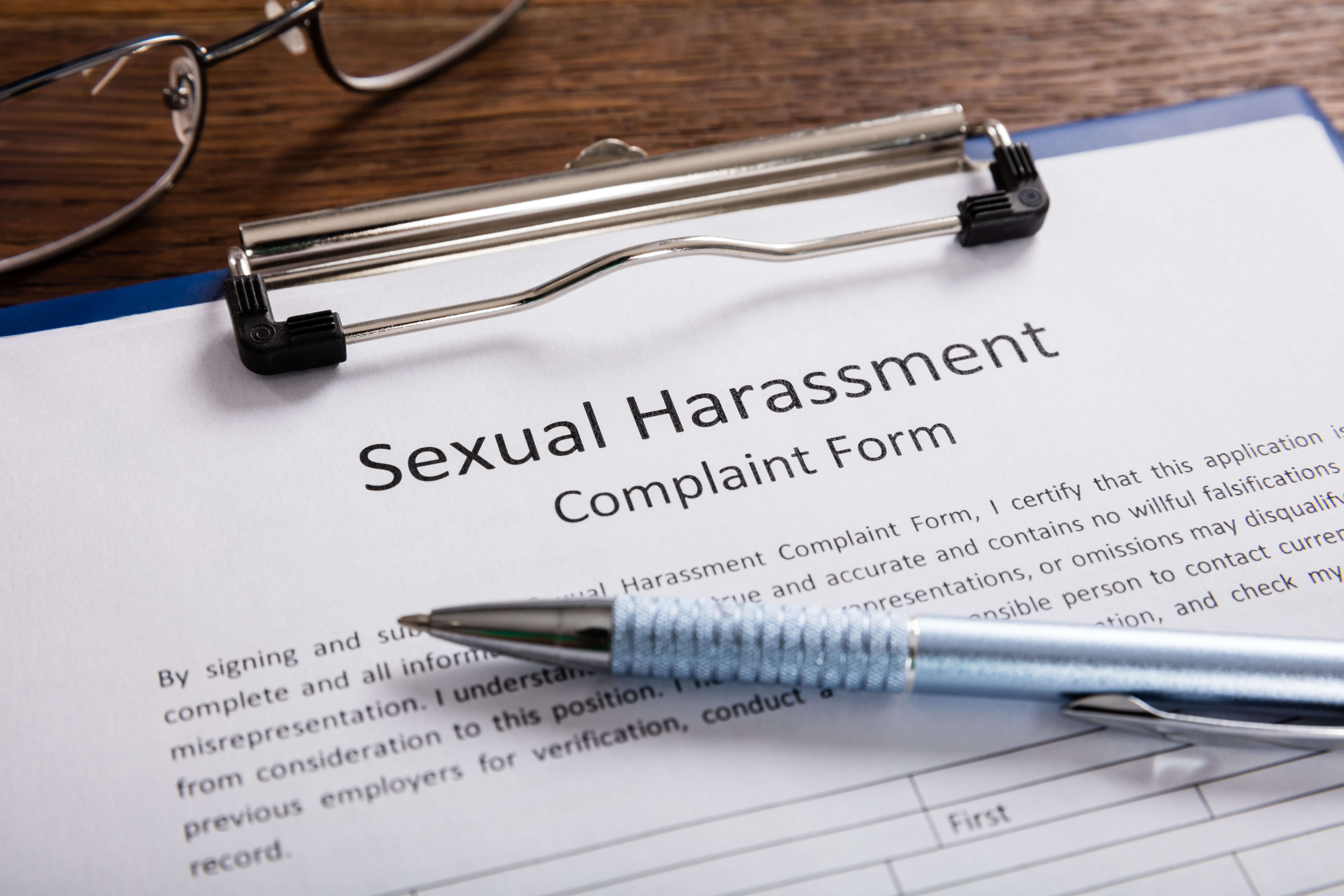What is workplace sexual harassment?
Workplace sexual harassment is any unwelcome behavior, of a verbal or physical nature, that is directed at a person in the workplace due to his or her gender. The New Jersey Law Against Discrimination and Title VII of the Federal Civil Rights Act prohibits sexual harassment in New Jersey.
What are some examples of sexual harassment?
Sexual harassment can include any of the following:
- Vulgar jokes
- Inappropriate verbal statements about someone’s clothing, looks or sexual history
- Groping, hugging, kissing, fondling and other inappropriate physical contact
Emails, letters and memos with sexual content - Offensive or lewd photos, pictures and drawings
- Repeatedly asking someone for a date
- Promising benefits, a raise, promotion or other achievement in exchange for sexual favors
- Etc.
Who can be the victim of sexual harassment?

Anyone can be sexually harassed, regardless of gender, age, sexual orientation, religious background or race. Men and women are both protected from sexual harassment by law.
What steps should I take if I have been sexually harassed at my job?
- Report the harassment to your supervisor, manager or HR department immediately.
- If your company has an established sexual harassment policy, follow the procedures.
- If you are unable to obtain relief from your employer, you may report the sexual harassment to the Equal Employment Opportunity Center (EEOC), the NJ Attorney General’s Office, or the Division of Civil Rights. Retaining legal counsel at this point is strongly advised.
- Time is a vital component in these claims, so act quickly.
What are the different types of workplace sexual harassment?
Workplace sexual harassment can be classified as either creating a “hostile work environment” or being “quid pro quo.”
What is quid pro quo?
The legal phrase, “quid pro quo” translates from Latin to basically mean one thing in exchange for another. In this type of sexual harassment, the victim is threatened, either outright or by implication, with job loss or other detrimental treatment on the job if she/he does not accept or consent to the sexual advance. It also includes being rewarded on the job for complying with the sexual request.
Can sexual harassment only be committed by people who I work with?
Workplace sexual harassment offenders are employers, supervisors, co-workers, and in some cases even individuals who don’t work for the victim’s employer, such as clients. If a supervisor or employer is aware of – or should have been – sexually harassing behavior by a non-employee, he is legally obligated to take appropriate action immediately. Failure to do so leaves the employer liable.
Contact Our Sexual Harassment Lawyers Today
For more information please give us a call or fill out the form on our website. Our attorneys are here to fight for you.
